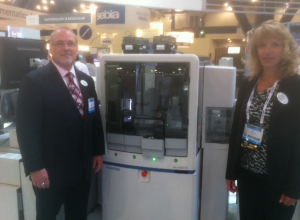With the increasing emphasis on healthcare and the delivery of medicines, Blockchain can be a new approach to the healthcare structure. Blockchain is a decentralized, digital ledger technology commonly used for cryptocurrency transactions like Bitcoin or Ethereum. But now, it is being used for many different purposes, including medical care. Experts project that the healthcare sector will spend over $513 million on blockchain technology by 2028.
In simple words, blockchain is a distributed database in which information is stored within blocks secured by cryptography. Cryptography is a process in which information is secure and safe, preventing any third party from manipulating the information, making blockchain a more secure and trustworthy option when compared to traditional database techniques.
There are plenty of reasons blockchain is helping the healthcare sector evolve. You should learn more about the role it will play in the future of healthcare.
How it Evolves the Medical Industry
The medical industry is a highly competitive industry where every single piece of data is one of the most needed commodities in the field. Blockchain guides help us understand its decentralized and transparent nature of data storage. According to the experts, Blockchain has the potential to be the biggest disruptive technology in healthcare since the internet. Blockchain’s technology can be used in all aspects of digital transactions, not just with cryptocurrencies.
There are many ways that blockchain can transform medical care because it provides us a way to track and store huge amounts of data in a way that is both secure and transparent. It is essential to have accurate reports of each data to ensure that every patient gets the optimized treatment or medication as per their needs. The transaction would also be much easier to assure when an individual and their doctor have complete control. The only way to achieve this is by using blockchain technology, which is entirely secure and safe for each patient’s information, medication, and other health conditions involving a person. Blockchain also provides a long list of benefits to the medical industry, such as:
1. Low transaction fees: Blockchain technology has no transaction fees. With none, the cost saving is much cheaper compared to traditional databases with transaction fees. This is because it’s more cryptocurrency-friendly in terms of language and more secure due to cryptography. Also, since it uses a peer to peer network without an intermediary, no need for banks would incur high costs to transfer money.
2. Easy access to data: With blockchain technology, data is accessible to all parties, which doctors can use for analysis, and patients can access their health data. The distributed database makes the safest way to store and share information.
3. Accessible records: Blockchain can store and access records anytime, making the medical industry more efficient in terms of time usage. Due to this factor, it is easy to reach any record or data of any kind with blockchain technology.
4. Reduces costs for insurance companies for storing and maintaining extensive databases: Blockchain can help insurance companies reduce costs for managing their databases more efficiently because blockchain is more secure and reliable with its cryptography system. This can play an important role in lowering healthcare spending.
5. Energy efficiency: Blockchain can save energy for medical institutions by reducing transaction time for each data. This will allow data to be distributed into smaller parts, making it less energy-consuming than traditional database techniques. Every piece of information is stored into a single large hard drive or memory device.
With blockchain technology in use, people can control their records and decide who can access them. If someone wants to share their health data with any doctor or a hospital, that person can do so. The doctors or hospitals would be happy to see how much information about their patients is available to analyze and assess.
Challenges of Implementation
Although it is a promising technology having numerous benefits, blockchain is still a new technology that we are just getting used to. The following are a few challenges for implementation:
1. Medical facilities need to be trained in blockchain programming, and therefore, it will take time for them to switch to this technology.
2. Blockchain is just a new technology different from other existing technologies that insurance companies are already using to serve their customers and maintain an extensive database for information storage.
3. The trust issue still exists among all parties involved. There’s also no proper regulation of the field, which makes healthcare companies hesitant in implementing blockchain. Besides this, there’s also a lack of knowledge and skill needed to fully grasp the nature and intricacies of this application in society.
FAQs
1. Can blockchain technology be compared to a traditional database technique with less accessibility to data and low security?
Blockchains are less accessible since they are peer-to-peer networks, while traditional databases are connected over a central server. Blockchain has much more security than traditional databases, with cryptography playing a crucial role in safety and protection.
2. Can patients have complete control over their health information?
With blockchain technology, it’s technically possible for patients to access their data. They can also decide whether anyone can access it, including doctors or not. At first, it may be challenging to understand as one won’t see their health diagnosis or medication, but it is possible by using a private key. A secret key that only the owner of the data can access.
3. How is blockchain technology better than a traditional database technique?
Blockchain is a more secure and trustworthy technology because there’s no third party involved, making it more accurate in data storage and transfer. This is evident in the medical industry, where many instances of data manipulation are prevented by blockchain. Moreover, it’s more cost-effective than other database technology in transaction fees.
4. Can blockchain technology be implemented in a traditional database system?
The answer to this question is a big YES! It is possible to integrate blockchain technology with a traditional database system because they are both decentralized by nature. There’s no need for an intermediary like banks when implementing blockchain technology.
Conclusion
Blockchain can transform the medical industry and make it more efficient. It is easy for patients, doctors, and many other parties to access their health records in a decentralized form. This will also reduce time consumption and cost for insurance companies, hospitals, and government bodies for storing data in centralized systems. There’s still a long way to go before thoroughly implementing blockchain technology, but it has shown its potential and is being used in many industries. Individuals can use blockchain guides and resources to help implement and adopt this system.







